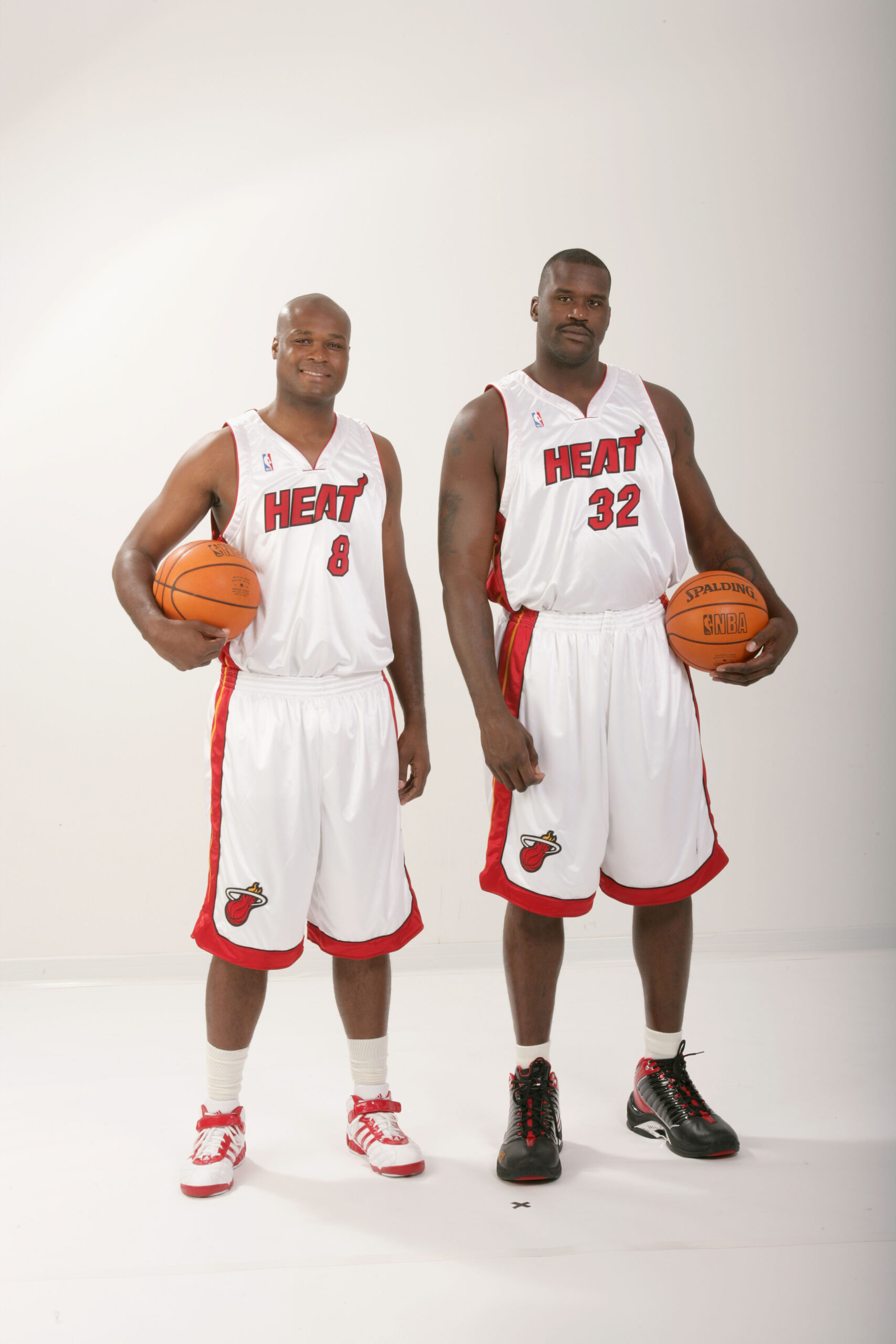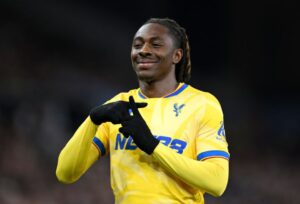Antoine Walker enjoyed a stellar career in the NBA having been selected with the sixth overall pick in 1996.
He was a three-time All-Star with the Boston Celtics and won the NBA Championship on a stacked Miami Heat roster in 2006.
Walker played alongside Shaquille O’Neal in Miami
His career saw him link up with legends Shaquille O’Neal and Dwayne Wade in Miami, as well as Michael Jordan in the 1998 All-Star game.
Walker earned $108million in the NBA and also enjoyed a lucrative shoe deal with adidas.
But two years after leaving the NBA in 2010, he filed for bankruptcy having blown $1m in Las Vegas and also lost out on a real estate investment.
Walker was known for living a flash lifestyle off the court with multiple homes, luxury cars, and expensive jewellery.
“I had a car fetish when I was playing,” he told Sports Illustrated. “I would always keep six, seven cars.
“If I would see a guy pull up in the lot with a new car, I would maybe say, ‘I like that’ and go get it.”
“A Maybach Mercedes Benz,” he added when asked what his worst purchase was.
“At that time they were pretty high-end vehicles. I paid like $400,000, $450,000 for it.”
Walker – one of six siblings – was renowned for his generosity towards his large family, friends, and strangers.
He also racked up huge gambling debts, including one six-week spell in Las Vegas which cost him $1million.
Walker won the Larry O’Brien trophy in 2006
He was fond of fast cars and luxury goods
“I’ve probably seen one hundred thirty million dollars. So I made a ton of money in my career, but I also want to know I did a lot of good things too,” he told the Big Smoke Podcast in April.
“So I was in Vegas training. Stay out there six weeks. I lost a million dollars in six weeks.
“I was like, ‘How the hell am I? I ain’t want to pay him a million.’ So I’m trying to figure out the most creative way to get around it. I took a buyout from him.
“I’m like, ‘How can I figure this out and end up working a deal out with him?’ But in the process of working a deal out with him, I was in Vegas hanging out.
“What they do, they issue a warrant for my arrest because I hadn’t paid yet.”
Walker agreed to hand over $900,000 in a payment plan but ended up on the hook for more over an investment in a real estate company that was hit by the 2008 recession and filed for bankruptcy on the advice of his lawyers.
He admitted that he was unprepared for the superstar lifestyle his sporting talent earned him.
“When I went through my financial difficulties and ultimately filed for bankruptcy in 2012, I really got a chance to see all of the mistakes that I made,” he told HoopsHype.
“I indulged and I was uneducated, which is what led to being bankrupt.
“When I went through all of that, I learned a lot and I wanted to turn my negative story into a positive story by helping others avoid the mistakes I made.”
Walker and former NFL star Bart Scott were hired by Morgan Stanley’s Global Sports and Entertainment division in 2015 and have used their experiences to educate rising stars.
“I realised this could serve as a healing process for me while helping others,” he added.
“I want to be open and transparent to these young athletes about the mistakes that I made, so that they don’t go down the same road.
“I try to teach guys to build the proper team around them – from their agent to their financial adviser to whoever is investing their money.
“Also, I try to get them thinking about generational wealth. When a guy comes into the league at 18 or 19 years old, he’s usually thinking short-term and materialistically.
“He’s not thinking about generational wealth and making sure he’s putting enough money aside for when he’s 40 or 50 years old. He isn’t thinking about providing for his future kids or future grandkids. A teenager usually isn’t thinking like that, so I try to put those things in their head.”



